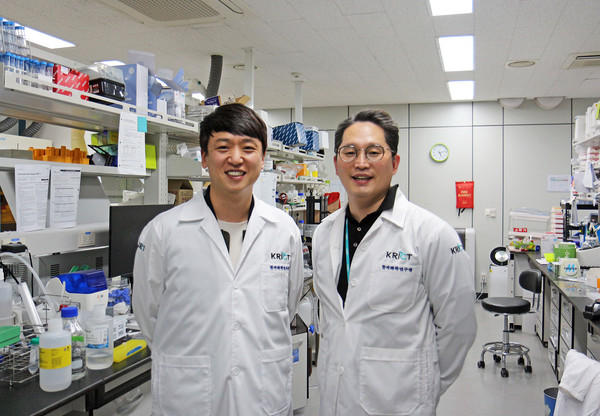A research team at the Korea Research Institute of Chemical Technology (KRICT) has discovered a rapid on-site diagnostic technology that can detect Covid-19 variants.

According to the research institute, Covid-19, which enters the body through the ACE2 receptor, undergoes various mutations, such as Alpha, Beta, Delta, and Omicron.
As there is a difference in the transmission and fatality rates depending on the variant, the institute stressed that detecting such variants is very important.
However, the current detection of the variants is only possible through gene amplification or sequencing, which takes a long time and costs a lot of money. Therefore, there has been an unmet need for a diagnostic technology to detect variants in the field quickly.
To resolve this issue, the team, led by Professors Kim Hong-ki and Lee Jong-hwan at the Center for Convergent Research of Emerging Virus Infection (CEVI), developed a technology that can rapidly detect both the original and variants of the Covid-19 virus and distinguish them using a pregnancy diagnostic kit, which has the same mechanism as the current Covid-19 antigen rapid diagnostic kits. In addition, the team’s kit can also confirm the formation of Covid-19 neutralizing antibodies in the body.
In developing the technology, the research team labeled antibodies with high binding affinity to both original and variant antigens of SARS-CoV-2 S1 protein in red and antibodies with high binding affinity to only the original Covid-19 antibodies in blue.
Afterward, when the team paired the antibodies with the ACE2 receptors and applied them to the technology.
As a result, the team confirmed a purple color for original Covid-cases and pink color for variant cases.
“Unlike the existing Covid-19 rapid antigen detection kits, the team’s technology allows the detection of normal antigens and variant antigens using the difference in the binding affinity of the ACE2-antibody combination,” Professor Lee said. “Notably, the technology can distinguish variant cases using the rapid antigen detection technique.”
The results of the research were published in the Biosensors & Bioelectronics.

